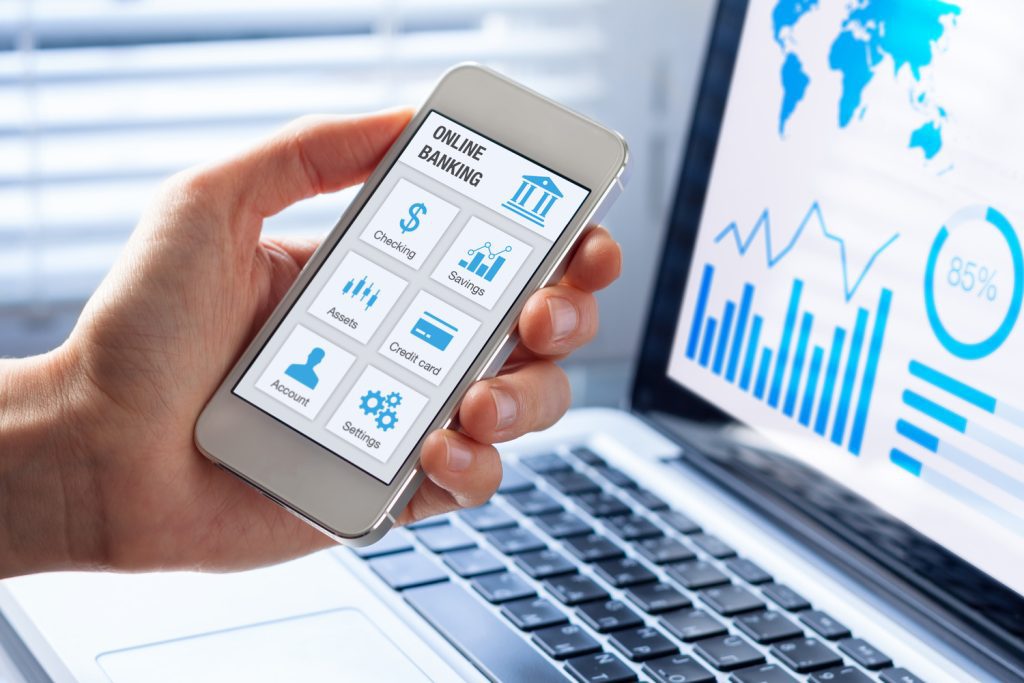What Is A Money Market Account?
A money market account (MMA) is a type of deposit account that offers interest rates. Some money market accounts offer check-writing privileges and a debit card, while others may limit withdrawals to a certain number per month.
MMAs are offered by banks and credit unions, and they are insured by the FDIC up to $250,000 per account. Overall, a money market account can be a good option for those looking for a low-risk, flexible, and relatively high-yield savings option.
How Does Money Market Account Work?
A money market account works by allowing you to deposit funds into the account, which are then invested in short-term, low-risk securities such as government bonds and certificates of deposit.
The financial institution that holds the account earns interest on these investments, and a portion of that interest is passed on to you as the account holder in the form of a competitive interest rate.
Pros And Cons Of Money Market Accounts
Like any investment, there are both advantages and disadvantages to consider when deciding whether or not to open a money market account.
Pros | Cons |
|---|---|
Decent Interest Rates | Limited Transactions |
Safety | Limited Growth Potential |
Liquidity | Inflation Risk |
Check Writing Privileges | Account Fees |
Debit Card Access |
- Decent Interest Rates
Money market accounts typically offer similar interest rates like traditional savings accounts, which can help your money grow faster over time.
- Safety
Money market accounts are FDIC-insured up to $250,000 per depositor, per insured bank. This means that your money is protected in the event that the bank fails.
- Liquidity
Money market accounts offer relatively easy access to your funds, which can be important if you need to make withdrawals for unexpected expenses or emergencies.
- Check Writing Privileges
Unlike savings accounts, some money market accounts offer check-writing privileges. This can be a convenient way to pay bills or make purchases.
- Debit Card Access
Unlike savings accounts, some money market accounts offer debit card access. This can be a convenient way to withdraw money from an ATM or make purchases.
- Limited Transactions
Some money market accounts have restrictions on the number of transactions that can be made each month, which can be a disadvantage if you need frequent access to your funds.
- Limited Growth Potential
While money market accounts offer a decent rate, they may not offer the same growth potential as other investment options, such as stocks or mutual funds.
- Inflation Risk
While money market accounts are generally considered to be low-risk investments, they may not keep up with inflation over time, which means that your purchasing power may decrease.
- Account Fees
Some money market accounts have account fees, such as monthly maintenance fees or ATM fees.
When To Consider It?
A money market account can be a good option to consider if you have a moderate to large sum of money that you want to save in a low-risk investment with a competitive interest rate. Here are some specific situations where you may want to consider opening a money market account:
You need a debit card & check writing: A money market account can be a good choice if you want to have check-writing privileges or a debit card linked to your account because some money market accounts offer these features. This can make it easier to access your funds when you need them, without having to go through the process of transferring money from your money market account to a checking account or making an ATM withdrawal.
Emergency fund: A money market account can also be a good choice for your emergency fund because it offers a relatively safe place to store your cash while still earning interest.
You prefer low-risk investments: If you're looking for a low-risk investment option, a money market account can be a good choice because it invests in short-term, low-risk securities like government bonds and certificates of deposit.

When You May Want To Skip?
While a money market account can be a good savings option for many people, there are some situations where you may want to consider other investment options instead. Here are some examples of when you may want to skip a money market account:
You Want Higher interest rates: Sometimes, you may want to consider other investment options that offer higher potential returns, such as stocks, mutual funds, and bonds.
You Can lock your rate for a long term: If you have long-term savings goals, such as retirement or your child's college education, you may want to look for long-term CDs that offer much higher interest compared to money market accounts.
You need to be able to access your money quickly and easily: If you need immediate access to your funds, a money market account may not be the best option because some accounts have restrictions on the number of transactions that can be made each month or require high fees for additional activities.
Which Bank Offer Money Market Accounts?
Not all banks offer money market accounts – for example, Chase, Bank Of America, or Citi don't offer “pure” money market accounts. But there are some banks worth mentioning:
-
Discover Bank
The Money Market Account offers a high interest rate, with a 3.40% – 3.45% APY for balances under/over $100,000. It allows easy access to funds through ATM, debit card, or checks. The account has a minimum opening deposit of $2500, but no minimum balance requirement and no account-related fees.
Deposits can be made through various methods, including online transfers and mobile check deposit. Overdraft protection is also available. However, there is a $30 service charge for outgoin wire transfers and fees may be charged by ATM owners outside of the no-fee network.
-
CIT Bank
CIT Bank offers a high-yield Money Market account with an interest rate of 1.55% APY and a $100 minimum opening deposit. The account provides easy access to funds, no monthly service fees, and 24/7 secure online banking.
It also allows you to deposit checks remotely and make transfers using the mobile app. With over 2x the national average interest rate, a Money Market account can help you save for an emergency fund, a down-payment on a home, and other savings goals.
-
Axos Bank
Axos Bank offers a High Yield Money Market Account that has no fees or minimum balance requirements, offers check-writing privileges, a debit card for easy access, and earns 0.25% APY with FDIC insurance.
In addition, the account offers features such as Peer-to-Peer Payments, Account Alerts, Debit Card Management, Biometric Authentication, and Bill Pay for convenient and secure banking. The account requires a minimum balance of $1,000 to open.
-
PNC Bank
The Premiere Money Market Account help you maximize your savings, and it offers higher interest rates when you link it to a select PNC checking account and meet transactional requirements.
It also offers unlimited deposits and up to 6 free withdrawals per month, along with online and mobile access to manage your savings. There is a monthly service charge of $12, but it can be waived if you maintain an average monthly balance of $5,000 or link the account to a select PNC checking account.
-
Sallie Mae
The Sallie Mae Money Market Account offers a competitive interest rate of 4.15% APY, compounded daily and paid monthly.
The account has no minimum balance or monthly maintenance fees and allows you to write checks, make free transfers, and manage your account easily online. Additionally, the account is FDIC-insured for added peace of mind.
Money Market Account Alternatives
There are a number of alternatives to money market accounts (MMAs). Some of the most popular alternatives include:
- High-yield savings accounts: High-yield savings accounts typically offer higher interest rates than traditional savings accounts, but they may have some restrictions, such as a minimum balance requirement or a limit on the number of withdrawals you can make each month.
- Certificates of deposit (CDs): CDs offer a fixed interest rate for a set period of time. CDs typically have higher interest rates than MMAs, but you may be penalized for withdrawing your money early.
- U.S. Treasury bills (T-bills): T-bills are a type of government bond that matures in one year or less. T-bills are a safe investment and they offer a higher interest rate than savings accounts or MMAs.
- U.S. Treasury notes (T-notes): T-notes are a type of government bond that matures in two, three, or five years. T-notes are a safe investment and they offer a higher interest rate than savings accounts or MMAs.
- U.S. Treasury bonds (T-bonds): T-bonds are a type of government bond that matures in 10, 20, or 30 years. T-bonds are a safe investment and they offer a higher interest rate than savings accounts or MMAs.
- Bond funds: Bond funds are a type of mutual fund that invests in bonds. Bond funds offer a diversified investment and they can be a good way to earn higher interest rates than savings accounts or MMAs.

FAQs
How do I open a money market account?
You can open a money market account at most banks and credit unions. You will need to provide some basic information, such as your name, address, and Social Security number. You may also need to deposit a minimum amount of money into the account, which can vary from bank to bank.
How do I withdraw money into a money market account?
You can withdraw money from a money market account by:
- Writing a check
- Using a debit card
- Making an ATM withdrawal
- Transferring money to another account
What are the fees associated with a money market account?
he fees associated with a money market account can vary depending on the bank or credit union. Some common fees include:
- Monthly maintenance fee
- ATM fee
- Overdraft fee
- Transaction fee
Can I have multiple money market accounts?
Yes, you can have multiple money market accounts with different banks or financial institutions.
Does the interest is fixed?
No. The interest rate on money market account is variable, means it can fluctuate based on market conditions and may be adjusted periodically by the financial institution.
